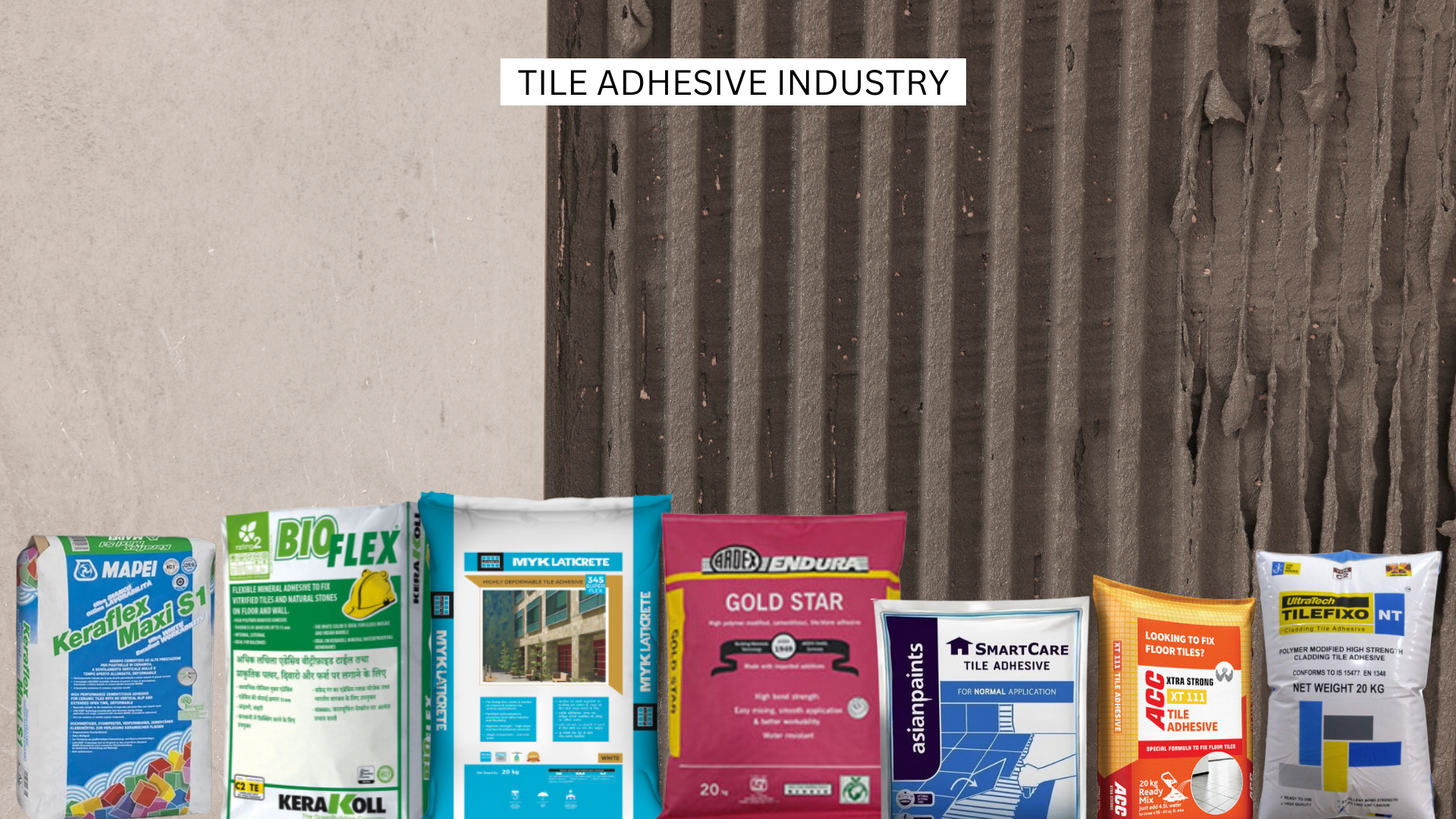Tile Adhesive and Grouts: Today Indian Tile Industry is the second-largest producer in the World and manufactures huge volumes of all kinds of wall and floor tiles ranging from conventional small-size glazed tiles to very large thin porcelain slabs. However, the tile is not complete in itself without its silent partner – tile adhesive and grout.
Need to Build Trust and Transparency | Tile Adhesive and Grouts in India
But another fact is that in India, tile adhesive and grout consumption is still much lower than the potential and despite the growth of tiles. The reason is simple – a significant portion of tiling is still done using conventional cement mortar, rather than high-quality tile adhesive and grouts.
Particularly in flooring, even large-size porcelain tiles are being installed with plain cement mortar even though it has limits in terms of strength, flexibility, and waterproofing requirements.
Why Tile Adhesive and Grouts are Important?
A tiled floor can achieve enhanced durability by using tile adhesives correctly, which creates a stronger adhesion and lowers the risk of tile detachment and popping up from substrate over tiles.
Conventional plain cement mortar lacks flexibility and deformability which is necessary to adjust for structural movement as well as thermal expansion possibilities. The tendency to avoid spacers between adjacent tiles further confirms this ignorance.
Read this Article also: Paints: Colour Dilemma to Quality Concerns, While Choosing Paints!
Apart from adhesion and flexibility which ensure durability, good quality tile adhesive and grouts bring some additional benefits which include, better workability, better waterproofing, and aesthetics.
Thankfully, the situation is improving. Growing awareness of the vital role tile adhesives and grouts play in creating durable installations has occurred in recent years, particularly for wall tile installations. With the awareness of the possible drawbacks of using plain cement mortar to install new-age porcelain tiles are beginning to get past the notion that cement mortar is an inexpensive solution.
Factors contributing to low consumption
Despite the necessity, there are several reasons why tile adhesives and grouts have not been very popular in India. The following are some of the prominent reasons.
1). Awareness and Education
For many users, tile adhesive and grouts bring an ‘extra’ advantage, not a necessity as they are not aware of issues that they will face with modern tiles if installed with plain cement mortar. Conventional techniques, such as using cement slurry, have been used for many years and are frequently thought to be sufficient. The adoption of contemporary tiling systems is significantly hampered by this ignorance.
2). Lack of Information and Transparency
People are not sufficiently informed about adhesive and grouts and their characteristics. It is evident from the fact that many people feel happy that the mason brought ‘a bottle of chemical’ and mixed it in plain cement mortar!
Another bitter truth is that many manufacturers are seen to shy away from providing complete information. They just remain limited to marketing communication. How many brands have declared the ingredients? It is a secret formula, some may say. But at this stage of mature marketing, a company offering 4 superior versions at premium, cannot expect customers to remain silent and not ask the difference and reasons for premium.
Such generic communication then becomes a norm for too many ‘me too’ players which may not be liked by serious and quality players.
3). Lack of Trained Tilers
There is a sizable workforce with little formal training. Modern methods and materials, such as tile adhesives and grouts, are frequently left out of the conventional on-the-job training that produces the majority of tile installers. Because of this talent gap, high-quality resources are underutilized even when they are accessible.
4). Cost Perception
Tile adhesives and grouts are thought to be more costly than conventional techniques. Even while the initial cost can be greater, there will be substantial savings over time because of lesser maintenance, fewer repairs, and increased durability. Nevertheless, end users frequently do not receive an appropriate communication of this cost-benefit analysis.
Another reason is that in the absence of proper training, the masons often use thin set tile adhesive in the same old fashion as low-cost cement mortar and over-consume it which straightaway increases the cost well beyond the estimate given by the manufacturer for standard installations.
Read this Article also: Flooring Challenges in India: Pretty Pictures, Poor Choices in Flooring
The Way Forward about Tile Adhesive and Grouts
The Indian market presents an opportunity for conscientious manufacturers and marketers to take charge and tackle these issues. They may realize the full potential of tile adhesives and grouts by emphasizing training, education, quality control, and collaboration with tile manufacturers.



Roff T01 is C2S1E ?
T01 roff is right choice for 2*4 gvt floor tiles ?